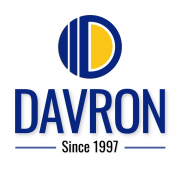As a potential executive search candidate, you may be involved in a confidential recruitment process. That might be the case with a job posting that doesn’t reveal the hiring company. One day you may get a call from a recruiter or a recruitment agency telling you about a job, but they won’t give you the name of the company. If that makes you nervous, I know how you feel. However, there are some legitimate reasons for companies to conduct confidential investigations.
What is Confidential Search
A confidential search or confidential hiring process is one in which the hiring organization wishes to remain anonymous until a specified time with the final candidate or final candidate.
Why the hiring process is confidential
There are four reasons why employers demand anonymity and executive recruitment agencies encourage confidential research.
In-house employee
The most common reason is that someone is currently in charge of the job and may not be aware that it has been replaced. This is normal practice in senior positions where an organization can’t exist without someone on the job for a few months, so first initiate a confidential investigation (often using a research firm).
Unattractive or obscure company
Another reason is that a particular organization may not have a very good reputation, and you don’t want that reputation to sift out potentially strong candidates until they are marketed for the opportunity. is. Or the organization is in a business that isn’t sexy and often needs to poach someone from a high-profile industry for a particular search. Again, the confidential investigative process gives you the opportunity to create some mystery and attract candidates who might otherwise have declined.
Attractive company
Some companies are naturally attractive to job seekers, and getting a resume is no problem. While this may be a good question, its popularity can also become the noise in an intensive hiring process. They want to find the best candidate for the job, but their popularity prevents them from focusing on the right candidates. Keeping the hiring process confidential reduces the noise.
competitive reasons
Here is the secret. When you think about it, job ads are amazing competitive information tools. Gathering a lot of information, if competitors pay attention, like adoption rates, where the organization is focusing, when the company is moving in new directions (which can be reflected in advertising), etc. I can. An example is shown below. A company may decide that he is interested in starting to consider acquiring a smaller competitor, but in-house he has no M&A experience. So they start searching, but naturally the main requirement for the job is his M&A experience. This effectively becomes an announcement of strategic direction in the job advertisement, unless it is confidential.
choose to be a candidate for a classified investigation
Whether or not you play is really up to you.
If you don’t have a security risk issue because you are currently unemployed or your job search is publicly known, then I’m pretty sure it is. Employers can set some rules for the search process, and you must choose whether or not to follow them.
If you are currently employed and are concerned about confidentiality, it is a guess.
Similar to your company? If yes, proceed with caution.
Sound like a competitor? Again, be careful.
You feel clear, confident, and ready to compete for real chances.
Just-in-time career coaching and consulting services for executives and other senior professionals.
How to manage your candidacy
If confidentiality is a legitimate concern, there are approaches you can try. Let’s call it “give and get”.
To find out a little more about the job vacancies, you need to reveal something about yourself. A recruiter’s best interest is to get the best candidate.
Related books: 12 Ways Executive Recruiter Calls Trust You
They won’t tell you anything unless you’re a strong candidate. If so, it might provide enough information to keep you interested in the process.
So the key is to get them interested enough to make concessions.
You can also call and explain a few things (without names) about your situation and background. That’s enough to prove you’re a strong candidate. The post intrigued you, but you want to make sure you’re not applying to your current company. Also, you should be careful if it is a competitor. You can also ask “Is it XYZ?” That might give you answers that will help you make a decision.
The second strategy is to apply, but hide the name and identity of your current employer and possibly your name from the application. In your cover letter, explain your situation and express a confidential preliminary interest.
The trick to both of these techniques is that you need to provide enough compelling information about yourself that the other person will want you to participate in the process.
Clarify your competitive advantage is highly recommended.
Related books: 15 Sources of Professional Competitive Advantage | 6 Steps to Answering Why They Should Hire You
Sending only a cover letter without sending a resume is one way, but it is more likely to fail the screening. Remember, if you’re nervous for no reason other than being blind or not comfortable sharing your information, you won’t get much help. If you choose to use this method, be sure to include relevant and credible experiences and achievements in your letter in order to get the other person’s attention.
A search company that manages the search process gives you some peace of mind that they are experts and are accustomed to working with people’s sensitive information on a daily basis.
Finally, you can of course choose not to apply.
While it may not feel right, this is a common and reasonable practice and part of the hiring process.
Any chance of a live performance? Learn more about solutions for executive candidates.





